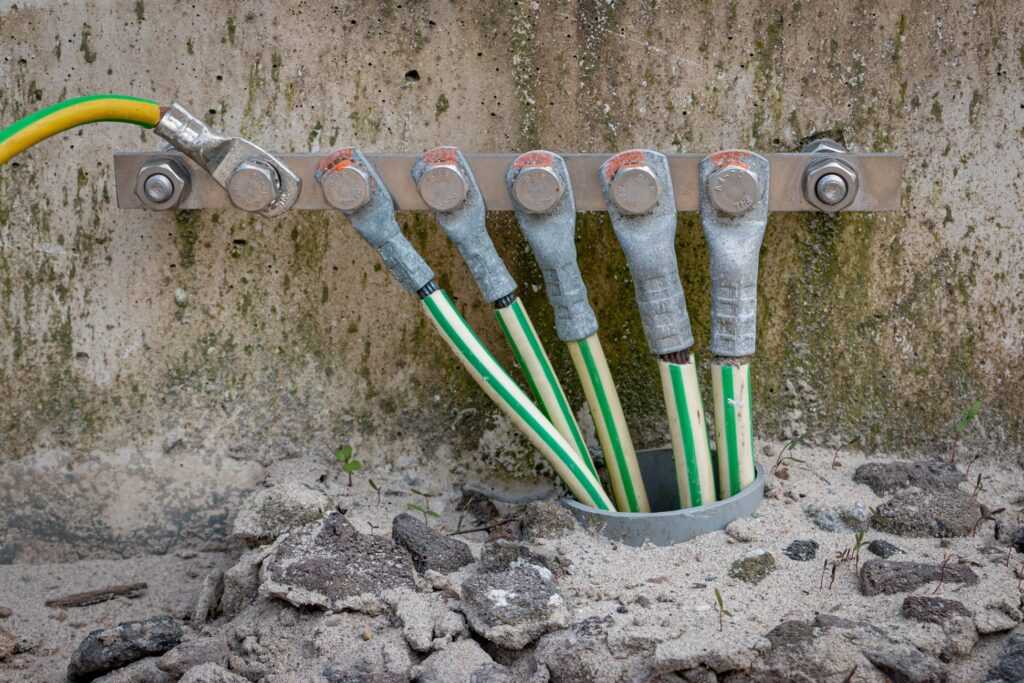The Role of Electrical Grounding in Home Safety
The Role of Electrical Grounding in Home Safety
For homeowners in Middletown, MD and surrounding areas, electrical safety isn’t just about modern circuit breakers or updated wiring—it also depends on whether your home’s electrical grounding is properly installed and maintained. While this part of your system may be invisible, it plays a critical role in preventing power surges, protecting appliances, and reducing the risk of shock or fire. Let’s take a closer look at how grounding systems work, how to spot potential issues, and why grounding should be at the top of your home safety checklist.
What Is Electrical Grounding?
If you’ve ever asked, “what is grounding in electricity?” or “what does a ground wire do?”, you’re not alone. Electrical grounding is one of the most misunderstood aspects of home wiring—yet it’s one of the most important.
In simple terms, grounding provides a direct path for excess electricity to flow safely into the earth. When a power surge, lightning strike, or wiring fault sends unexpected current through your system, the ground wire redirects that energy away from your home and its occupants. Without grounding, that excess voltage could travel through your appliances, outlets, or even people, causing injury or major damage.
How to Ensure Your Home Is Properly Grounded
If your home is newer, it was likely built with grounded wiring from the start. But for homes built before the 1970s, grounding may be inconsistent or missing entirely. A licensed electrician can inspect your electrical panel and outlets to determine whether your system includes proper ground connections. Here are a few ways to make sure your home is grounded safely:
- Install three-prong outlets that connect to a grounding wire
- Upgrade older two-prong outlets with GFCI protection or a proper ground
- Check that your main service panel includes a ground bus bar and bonded neutral
- Ensure the ground wire is connected to a ground rod or cold water pipe outside
- Consider whole-home grounding upgrades during major electrical projects
Benefits of Proper Grounding
Proper grounding protects your family, your home, and your technology. It serves as a first line of defense against unpredictable electrical events. While grounding may seem like a background detail, its benefits are wide-reaching and essential.
Preventing Electrical Overloads
When too much current flows through a circuit, a grounded system provides a safe release path. This prevents dangerous voltage buildup, helping your breakers trip safely without damaging equipment or wiring.
Protecting Appliances From Damage
Many appliances and electronics are sensitive to voltage fluctuations. Grounding prevents those spikes from reaching your home’s devices, extending the life of everything from your microwave to your smart TV.
Enhancing Overall Home Safety
A grounded system significantly lowers the risk of electrical shock and fire. If a wire becomes loose or damaged, grounding ensures that any stray electricity doesn’t energize exposed surfaces or flammable materials nearby.
Signs of Poor Grounding in Your Home
Even if your house has a grounding system, it may not be working properly. Faulty installations, corrosion, or disconnected wires can compromise your safety without any visible warning. That’s why it’s important to recognize the signs of poor or missing grounding. If you notice any of the following, call a professional electrician:
- Frequent static shocks from electronics or light switches
- Flickering lights or inconsistent power
- Appliances that shut off unexpectedly or behave erratically
- Buzzing outlets or warm wall plates
- Two-prong outlets without GFCI protection in older homes
- Electric shocks when touching metal appliances or fixtures
Upgrading Older Grounding Systems
Older grounding methods, like grounding to a water pipe, can deteriorate over time. In many cases, code now requires the use of grounding rods or grounding electrodes that meet updated standards. During an electrical service upgrade, panel replacement, or full-home rewiring, it’s a smart time to upgrade your grounding system as well. Not only will it protect your devices and loved ones, it will also bring your home up to code and may even improve your insurance standing. We’re happy to answer any questions you may have, including “what is grounding?” and more.
Trust the Pros for Safe Grounding in Middletown, MD
If you’re unsure whether your home’s grounding system is functioning properly, don’t leave it to guesswork. Provident Electric has been helping homeowners in Middletown, MD and surrounding areas understand and improve their electrical safety for years. Our licensed electricians will inspect your current system, identify risks, and make grounded recommendations (literally) to protect your home for the long haul.
Whether you’re updating an old home or planning a renovation, grounding is one element you can’t afford to overlook. Contact Provident Electric today to schedule a home safety evaluation or grounding system upgrade.

